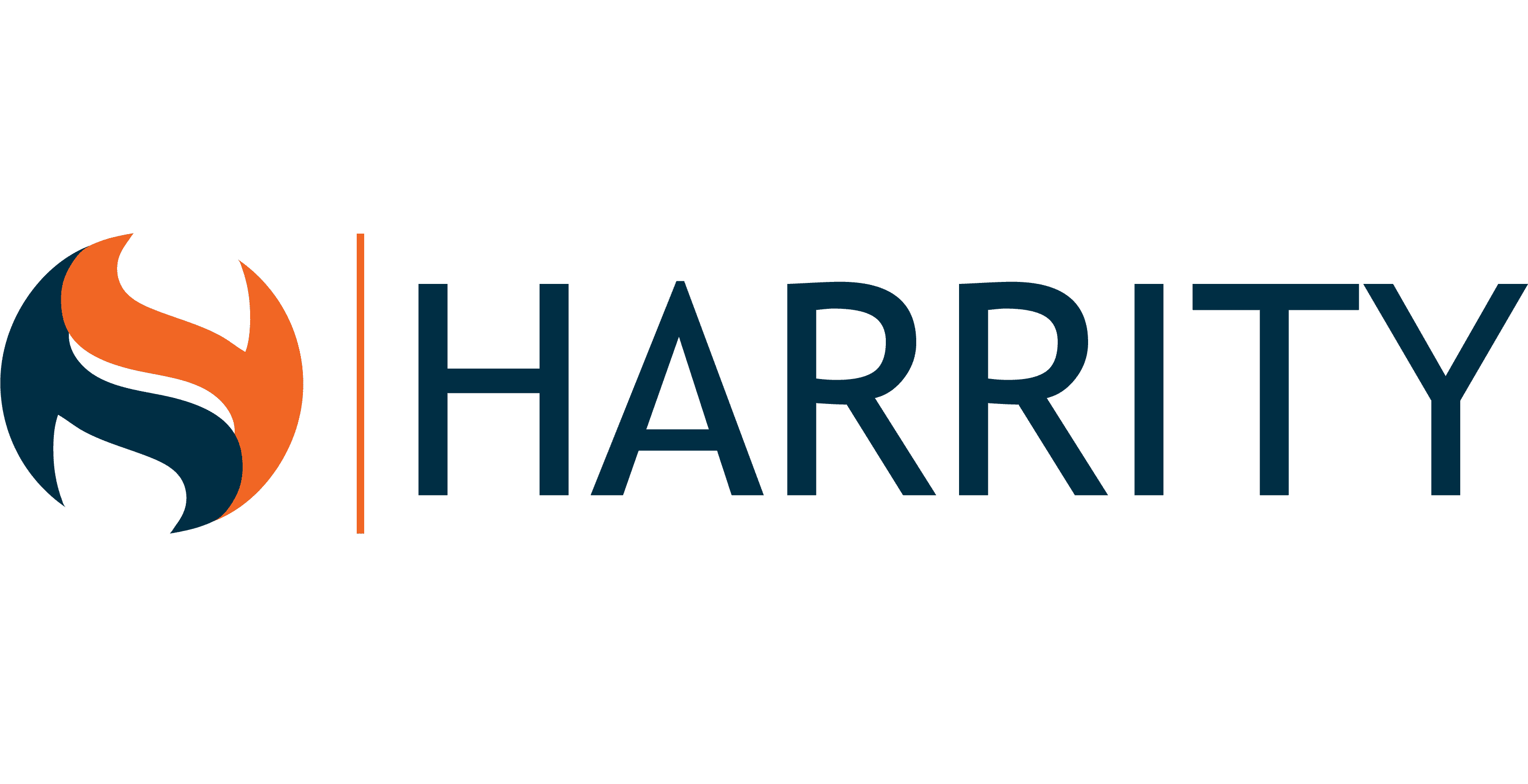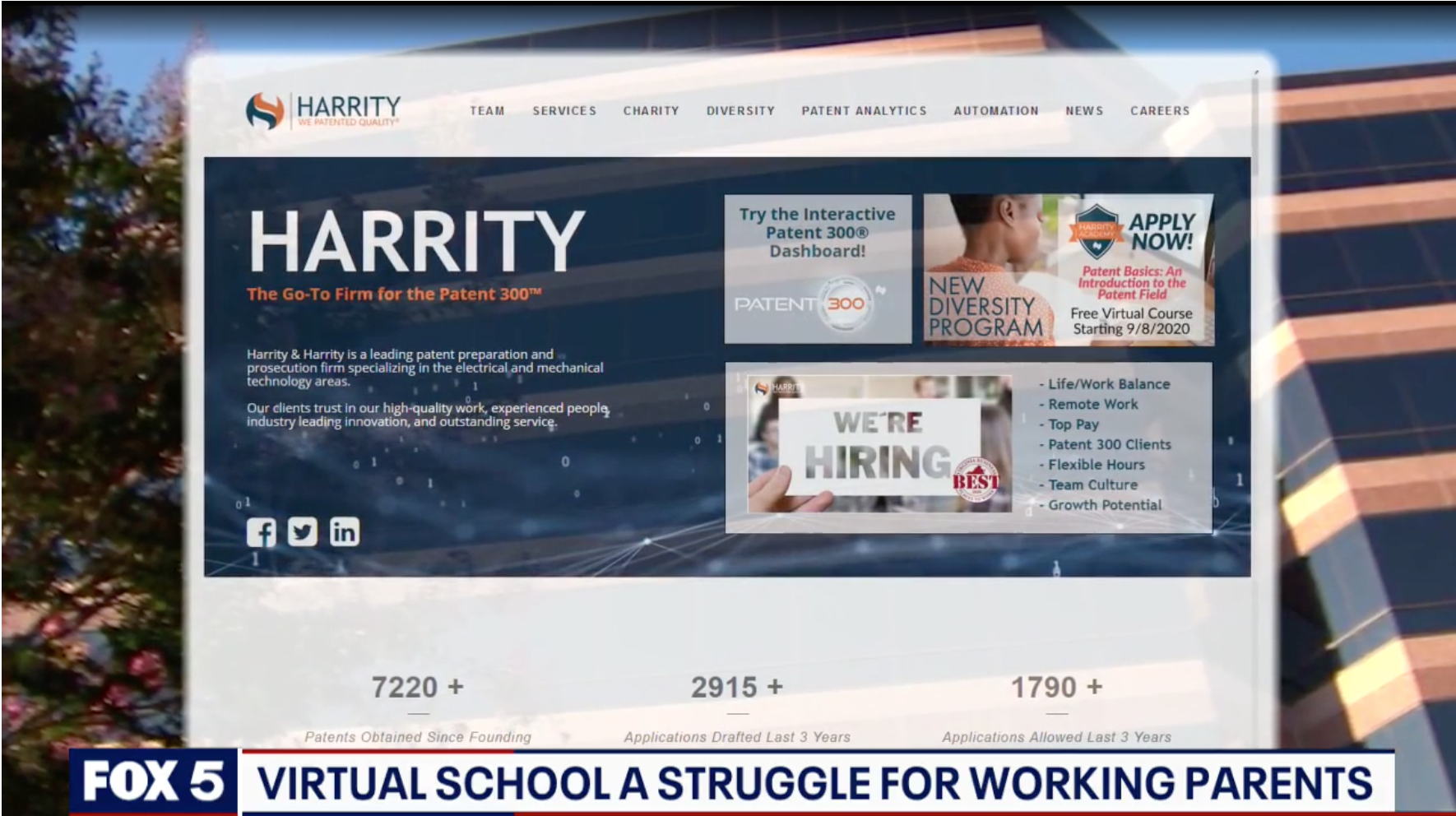Harrity Implements Optional 3PM Start for Support Staff Due to Virtual School
Harrity & Harrity, the Go-To Firm for the Patent 300™, has adjusted its flexible start time to accommodate distance learning. With schools across the country implementing virtual classes this fall, Harrity leadership announced that employees have the option begin their workday as late as 3:00 pm, allowing working parents and caretakers to focus on both the education of their children and their careers.
The firm already offers schedule flexibility, remote options, and a 7.5-hour workday, and recently implemented a four-day work week trial period for support staff. The 3 pm start-time is just one more way Harrity is improving life/work balance in the legal field.
“At Harrity, we understand the predicament that virtual learning can create for working parents who are trying to balance their child’s schoolwork and their own career. We don’t believe in making our team choose between their family and their success, and recognize that with schools across the country practicing e-learning this fall, that is the unfortunate reality for many,” said John Harrity, Managing Partner.
“Effective immediately, we have modified our flexible hours to allow staff to start their workday as late as 3 pm, when most school days end. This will allow parents to assist with classwork and childcare during normal school hours, without using PTO or falling behind at work.”
The new policy has been well-received by staff, as it offers relief to the firm’s working parents struggling to find a balance.
Back in March, Autumn Vanatta, a Patent Prosecution Specialist at Harrity, began sharing her remote office with her two children.
At the time, her husband was also home and able to assist with helping their two children, in 1st and 4th grades, complete their online assignments. “We were one of the few schools that continued actual grading, classes were not just pass/fail, so sometimes it required teaching new material to the kids. Some days this took a lot of time and effort because we are not trained to be school teachers, so we put forth the extra effort to learn how to teach our children the lessons so they would not fall behind.”
However, as school starts back this fall Autumn’s husband will not be home to assist with school. Her children will be in a school district holding virtual classes so she jumped at the opportunity to start her workday later.
“I really wasn’t sure how I was going to balance two kids “in” school and working during the same hours, knowing how much time and effort my husband and I put into the last few months of the last school year. The 3pm start time will keep me from feeling pulled in three directions – responding to work in a timely manner and assisting two kids (in different grades) with school,” she said.
Docketing Specialist Julie Swartz added how appreciative she is of the firm’s consideration and support of its staff.
“Not only does Harrity & Harrity encourage their employees to innovate and excel while on the job, but also in life. In addition to the benefit of working remotely, having a flexible schedule empowers me to focus my attention on my child’s online schooling during typical working hours,” stated Julie. “The firm has alleviated the problem so many parents are facing during these difficult times- to be an educator, a role model, and a dedicated employee – all within the confines of 9 to 5.”
About Harrity & Harrity, LLP
Harrity & Harrity is a leading patent preparation and prosecution firm specializing in the electrical and mechanical technology areas, and is considered a Go-To Firm for the Patent 300™. Their clients trust in their high-quality work, experienced people, industry leading innovation, and outstanding service.
For more information on Harrity’s life/work balance and other factors that contribute to their high employee satisfaction and great team culture, and to apply to current openings, please visit harrityllp.com/careers.






